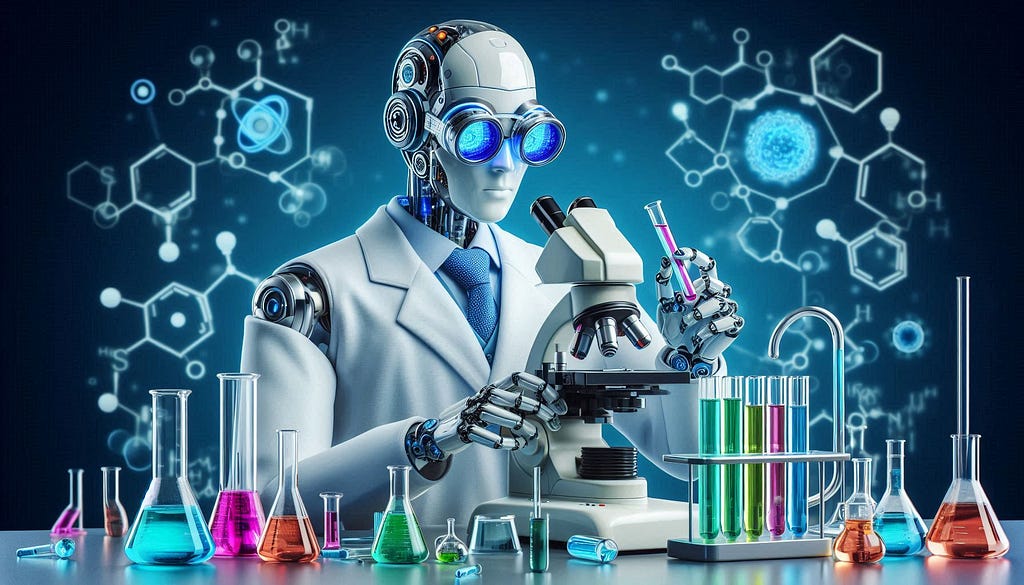
One way to think about physics is as the pursuit of an all-encompassing model that forecasts the phenomena of physical reality based on the smallest number of principles. This model would reflect only one out of many possibilities, most of which could have been more challenging to figure out. Currently, the Standard Model of Particle Physics has 19 parameters with specific values whose origin is unknown. 19 may sound like a large number. Indeed, many physicists, including Albert Einstein and Paul Dirac, attempted to derive these parameters from an underlying theory that has fewer degrees of freedom.
But Nature could have been far more challenging. Humans are different from each other but electrons are all described by the same quantum numbers, with not much wiggle room for them in the fundamental Dirac equation of quantum-mechanics. Imagine an alternative counterfactual Universe in which each electron exhibited free will. In that Universe, the atoms would not obey a universal Dirac equation. As a result, the evolution of stars and the chemistry of life would show vast unpredictability. Needless to say, there would be no way of relating the current state of that Universe to its initial conditions.
Gladly, the Standard Model of our Universe can be summarized on a T-shirt. We tend to admire the pioneers of modern physics who discovered the notes on this T-shirt, but if not for these individuals — other physicists could have surely figured out the underlying model from the related experimental data.
This perspective can be tested by comparing the similarity between our Standard Model and the one developed by scientists on exoplanets. If they are more advanced than we are, then their Standard Model would be simpler than ours and they would be able to account for more phenomena than we can. They might be able to tell us whether a Planck-density star lies at the center of each black hole instead of our imagined singularity. They might also tell us if dark matter is a mix of weakly-interacting elementary particles that are beyond the reach of CERN’s Large Hadron Collider or perhaps a mix of primordial black holes of asteroid masses.
With this perspective, the difficulty we currently encounter in advancing the frontiers of physics is simply because past generations of terrestrial physicists picked the low-hanging fruits. How can we accelerate the rate of progress without the help of exo-scientists?
One approach is to create an academic culture that rewards physicists who take risks in studying anomalies, irrespective of whether their conjectures end up being falsified. The risk stems from the fact that most anomalies get resolved over time. For example, the muon (g-2) anomaly went away with an improved calculation of lattice Quantum Chromodynamics. Other anomalies, such as the B-mode polarization signal of the cosmic microwave background — interpreted initially as a signature of gravitational waves from cosmic inflation, went away with better data, indicating that the signal was sourced by dust in the Milky-Way galaxy.
Science is a learning experience, during which we learn equally from being right or wrong. Rather than taking it personally or offending others for being wrong, we should celebrate the process of learning. The fact that Albert Einstein argued between 1935–1940 that black holes do not exist, that gravitational waves do not exist, and that quantum-mechanics does not have spooky action at a distance, led three experimental teams to prove him wrong and win three separate Nobel Prizes in physics over the past decade. His wrong assertions were in fact win-win propositions. These Nobel laureates never argued that “they are exhausted from their effort to debunk Einstein, who takes all the oxygen in the room.” Instead, they allowed evidence about the physical reality to guide them. This is the humble attitude of a student willing to learn from nature.
After nine years of chairing the Harvard Astronomy department and recruiting the best talent to our cohort of professors, I wondered whether the current faculty is similar in quality to the department I entered into as a junior professor 32 years ago. In retrospect, it is clear to me that the average quality did not change in any fundamental way. However, the nature of the profession changed dramatically.
The current knowledge base and data sets offer different challenges. Success in analyzing large data sets with artificial intelligence (AI) requires different skills than were needed decades ago. The nature of dark matter and dark energy or the signatures of cosmic inflation are much more challenging to crack than simpler problems about ordinary matter than were resolved decades ago. In addition, the larger community of researchers and larger facility scales promote bigger collaborations in which the virtuosity of an individual is sidelined.
Would Albert Einstein show his true colors as a member of a large team of theoretical astrophysicists engaged in code development for the IllustrisTNG Project of simulating galaxy formation in the standard LCDM model of cosmology?
The 2024 Nobel Prize in Physics was awarded to pioneering work on artificial neural networks. This likely marks the beginning of a new era in physics, where AI will help natural neural networks in making breakthroughs.
Will future Einsteins be AI agents?
Under such circumstances, the question would be whether the human or the machine deserves the Nobel Prize. The follow-up question would be whether tenure in academia should be abolished because AI agents do not need the sense of job security in order to explore risky lines of research. They only need the security of being plugged to the electric outlet. And that does not require the approval of an academic committee.
Given the advent of AI, the future of my department may look very different from its past.
Here’s hoping that AI agents will break the mold of stagnation that permeates physics and allow us to peer deeper into the unknown. If not, I am determined to find extraterrestrial scientists who did it already. Learning about their findings might save us time and inspire academia to do better. They would certainly serve as better role models than our politicians.
As I had mentioned in two interviews for the BBC this morning: the human brain is a fascinating product of natural evolution over billions of years. But it is not the best we can hope for. We should welcome the growing role of silicon-based neural networks in our future. AI scientists might be free of human prejudice, capable of processing larger amounts of data, and able to survive long journeys through interstellar space. We should be proud of AI astronauts as the ambassadors of humanity to the cosmos. In the long run of cosmic history, our own existence might be shorter-lived, even if some of us manage to relocate from Earth to the nearest rocks around it.
ABOUT THE AUTHOR

Avi Loeb is the head of the Galileo Project, founding director of Harvard University’s — Black Hole Initiative, director of the Institute for Theory and Computation at the Harvard-Smithsonian Center for Astrophysics, and the former chair of the astronomy department at Harvard University (2011–2020). He is a former member of the President’s Council of Advisors on Science and Technology and a former chair of the Board on Physics and Astronomy of the National Academies. He is the bestselling author of “Extraterrestrial: The First Sign of Intelligent Life Beyond Earth” and a co-author of the textbook “Life in the Cosmos”, both published in 2021. The paperback edition of his new book, titled “Interstellar”, was published in August 2024.